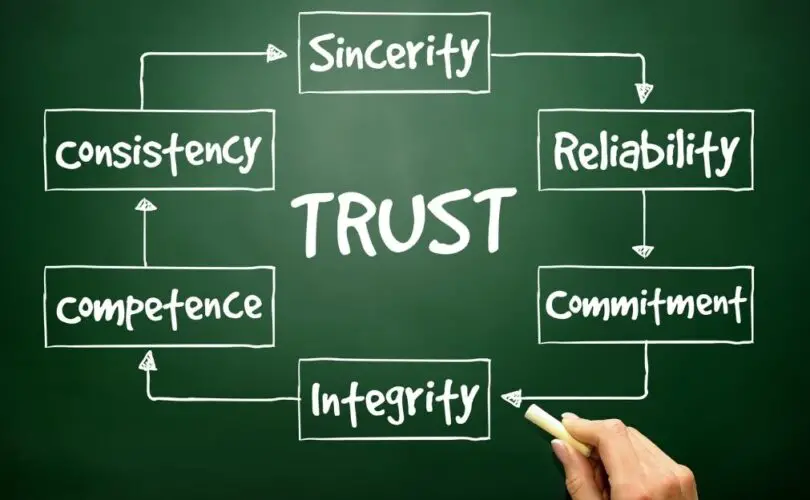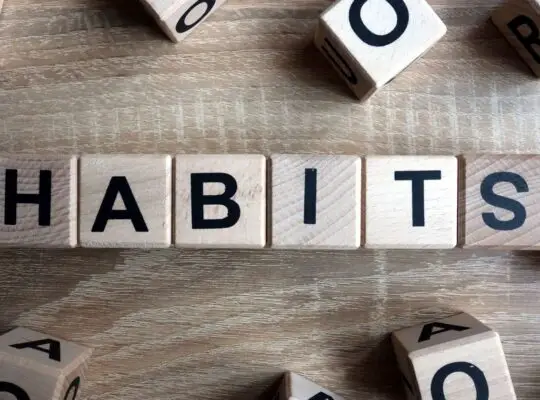Learn To Trust Yourself In All That You Do
Trusting oneself is a significant life change one can make to have a transformational life standard desired by many. Self-trust is the key that leads many to a path of happiness and fulfillment in life. The best feeling is one occasioned by the confidence in oneself, the action taken to meet the desired goals by one, and the actual success of a thing.
The American Philosophical Association revealed that over four billion of the world’s population are encouraged to trust the views of others rather than theirs. From trusting the opinions of elders, leaders, motivators, friends, and family; people have been positioned to place themselves on a condition where they seek the opinion of others.
Self-trust takes a great deal of inward thinking and focus. Always place your thoughts at the foremost part of your decision-making scheme, understanding that chasing your goals through an independent opinion is essential for a better life.
In this work, we take a close look at how to stay true to yourself while meeting the demands of society. How to trust yourself in all that you undertake despite being in a society where the opinion of others is taken in priority. How to regain your self-confidence after failing from following the demands of others.
Why Is It Difficult To Trust Oneself?
Self-trust is a process; you train yourself to the point that you’re confident about the results of your opinions.
Failing in some aspect of your life after following your thoughts can lead to self-abandonment; self-abandonment invariably leads to a loss of self-trust. This lack of trust in oneself will then be metamorphosed into trust in others’ opinions and views.
Martha Nussbaum believes our thoughts guide our actions; if there is a lack of confidence in yourself, there is much to work in your inside. You should develop on finding your interest and strengths, this places you in your world of confidence.
Also, being tough on yourself can be a reason for your lack of self-trust- always be kind to yourself, even when you make wrong decisions. Develop a relationship with yourself, speak to yourself and grow the trust in you that would give you a better life in the end.
Our lives are usually influenced by our surroundings, the thoughts of others towards your actions push you into a state of rejection. To overcome this rejection, try keeping these 25 tips that are proven to give your self-trust a huge boost.
25 Ways To Build Your Self-Trust
Building self-trust is a heck of a deal- especially when you’ve been positioned to believe that the decisions of others are more effective than yours. You place yourself in a state of self-worthlessness, always reminding yourself of how you once failed in the past because you trusted your instinct.
The Association for Psychological Science revealed through its study that “the ability not to trust one’s instinct has led to a growing population of dependents amongst adolescents.” Another study by the Colombia University showed persons who trust the instinct of others than theirs are prone to be provocative at the most irrelevant things.
Psychologists have agreed that the process of self-trust is a step that takes time, determination, and discipline. Some psychologists compare the act of developing self-trust to the act of trying to pull out of a long addiction. Indeed, the belief that your decisions are inferior to other people’s decisions is an addiction that would take countless therapy to cure.
Nonetheless, below are some of the most proven strategies from leading philosophers and psychologists on how to build self-trust.
1| Get Closer To Yourself
Try starting by spending time with yourself- this can be achieved by doing the things that make you feel happy. Go swimming, shopping, take a trip on a holiday all by yourself.
Growing closer to yourself helps you understand what you want more. If you work a lot without spending time with yourself, this can affect your self-trust and your general mental state.
You need not do things fancy, sometimes your quality time with yourself might be watching that movie or a soccer game that arouses the confidence in your personality.
According to Abraham Maslow spending time with yourself helps you speak to your confidence. Richard Davison believed everyone had a voice speaking to their inner thoughts on every occasion. When you make decisions, your inner voice plays a deep role in deciding whether you should trust yourself or otherwise.
Tara Brach developed the Rain Practice, which entails you speaking to your inner self while undertaking self-compassion for a better self-judgment.
2| Love Yourself First
Loving yourself is an offshoot of the first tip. Love yourself before others can love you. Try showing yourself affection and care, respect, and words of encouragement daily.
Never expect external validation for your actions when you rarely validate yourself for the actions you take. Tell yourself, “You’ve done well, you’ve done your best,” never expect less than that from others.
When loving yourself, list the best things you’re good in, from music to soccer or even cooking, this gives your mind encouragement and increases your self-trust in the end.
Abraham Maslow posits that “no one would like you for who you are if you don’t like you for who you are.” There is always something to talk about in everyone, look within and tell your story.
According to research by the Place of Harmonypersons with a strong love for their personality are bound to have confidence in their decisions. Start loving yourself by making a list of twenty things you love doing- this would encourage you to see the star in you.
3| Take The Challenge
You build self-trust by always taking risks to challenge yourself for the best. You focus your energy on doing your best to attain the perfect results, irrespective of what society thinks.
Despite failing, you become encouraged by the fact that you gave it your best shot and had significant results of success. Your self-esteem develops with a continuous challenge- this invariably results in a growth of your self-trust.
Take up that task you had thought was difficult, go on that journey that scared you always, have a date with your crush; these and more allow you to make the best decisions for a better living generally.
Ayan Rand states all you need to do is accept the challenge. Accepting the challenge in itself is a decision from your inner self; if you’re scared of challenges, the chances are high that you do not trust yourself.
John Searleagrees that a continuous challenge of oneself is bound to build one up to a point of self-confidence quickly. Accepting challenges is also a proven step to attaining self-worth.
4| Set Goals
Setting realistic goals that can be achieved within a particular timeframe is vital to the overall success of the growth of your self-trust. Place self-compassion as the bedrock of your goals, trying not to stress yourself to pursue unrealistic goals, and blaming your wrong decision in the future.
Take little steps to achieve your set goals, you could break your goals into short-term goals aimed at achieving the long-term goals. For instance, if you decide to buy a car, set a short-term goal of how to grow your finances, which would subsequently lead to you getting a car.
Paul Churchlandrevealed that setting goals allow people to overcome the fear of the unknown, which is a major cause of lack of self-trust. The fear of achieving large tasks without having short-term and long-term goals can throw one into a state of confusion and fear.
Short-term goals would make you understand the responsibilities and the values to be invested in the task to see you attain the long-term goals- this lets you attain success easily.
Also, Benjamin Franklin revealed, “if you fail to plan, you are planning to fail,” goal is the sufficient plan needed to set you on track to succeed in the task.
5| Learn to Encourage Yourself
It doesn’t matter whether it’s for the success of the goal set or for a thing you know how to do well, all that matters is you are rewarding yourself continuously. Always encourage yourself at every opportunity.
For instance, if you love seeing movies, try telling your inner mind it would get a free movie as a reward for finishing a task- this helps you put in your best. William Borman advises you to set goals for yourself and upon an achievement you reward yourself. Make sure to keep all your reward promises because your inner mind has its senses, it can also begin to distrust you.
Borman further posits “the best gift to give yourself is rest,” indeed resting goes a long way to set your inner mind in a state of calm, letting it articulate tasks better, leading to a reduced failure rate at the end.
6| Keep Track of Your Achievements
Susan McDanielexplains this better when she stated, “always keep an update of your achievements, it lets you gain control of yourself.”
The world is filled with tons of competition, some of which you might not be strong enough to meet up with the competition; but sometimes you might get lucky and win- keep track of these wins.
These wins tend to boost your self-confidence, allowing you to see your decisions as worthy enough. Alfred Powel insists that you always keep a record of all the first wins. The first time you asked a girl out, the first time you sealed a deal, the first time you passed a national exam.
For instance, Mary lived in the outskirts of town, no one in her family had ever gone to college. She promised herself to get into Harvard; when everyone heard this, they tried talking her down, “it’s way too expensive!” “Why not be a farm girl like the rest of your family?”
Mary surprised everyone when she got into Harvard to study law with a tuition scholarship. What’s more is that Mary graduated with distinction, wrote the bar exams, and was called into the Illinois State Bar. Mary had counted her small wins, which she termed ‘blessings,’ this inspired her to move on fast through trusting herself and her decisions.
7| Be Independent
Being independent is pivotal to your success in trusting yourself in the things that you do. Never be too quick to call on others on the slightest problems, try taking the lead and making decisions that can assist you in dealing with your issues independently.
One of the most significant builders of self-trust is knowing that you are fit and capable of handling issues whenever they are thrown your way. You can take the lead, looking internally for answers to a difficult issue you are in.
Alfred Powelbelieves, “it’s a good idea to seek help in time of trouble but before you do so, exhaust all possible internal solutions first.”
Indeed, we require the assistance of others to live in the world. But if you always place your issues on people before considering solving them yourself, you will reduce your self-trust drastically.
Shelly Taylor suggested that persons who use their initiative to solve their problems are confident people who see the purpose for their creation. Take steps to deal with your issues independently, you would love how well you make decisions, which make you feel confident and have a great deal of self-worth.
8| Never Let People Belittle You
When struggling with self-trust, you more often will not stand up for yourself when being insulted or wronged- this feeling is occasioned by self-abandonment, which is a vital feature of a lack of self-trust.
You feel the opinion or view of the bully is right, so you take it in with the hopes of improving in the future. You let the dictates of others guide your reactions, after all, your opinions do not matter to you.
Freda John puts it perfectly when he stated, “standing up for yourself or being angry after being wronged is a suited step to all-round self-development.” Don’t try playing the nice guy, always set the boundary straight; otherwise, people would match over you and think it’s normal- this would reduce your self-trust.
Always fight back when being belittled, it’s perfectly fine to set boundaries, it helps those around you understand the way they should treat you. If you let them match over you at every opportunity, they would take the chance to its last.
Dr. Robert Gloverwrote that “we live in an ironical world, where nice people are being trampled upon and tough people are being respected.” Never be too nice, it reduces your self-worth and self-trust.
9| Respect Your Opinion
If you lack self-trust, there is every possibility you do not trust your opinions. Your thoughts are geared towards trusting the opinions of the people around you.
While it’s true that seeking the opinion of others helps to give you an informed decision, but seeking your opinion first is where the procedure begins. Once there is a challenge, your mind often thinks of a solution, try out this solution and see if it works; there’s no harm doing so.
According to research by the Academy of Counselling Psychology your mind tells you the best option, it is the voice of God on your head directing you on what to do to get the problem solved. The best path to choose is to listen to your opinion, it offers you a clearer view of what to do in the situation.
10| Remember the times You made the Right Decisions
You might have slacked it most of the time, but there are a few moments you have made the right decisions, some of which you ignored. These decisions could be helping an old lady to cross the street, encouraging a colleague in difficulty, standing up for someone, joining a club, taking out the trash, etc.
You may lack self-trust because you always forget the excellent decisions you made when you trusted yourself. You’re always fixed with pessimism, recalling every bad decision you’d made in the past and blaming such failure on yourself.
Winne Walker posits, “humans are some of the weakest living beings on earth, all you have to do is remind that successful person who has achieved 1000 success, the day he once failed.” Reminisce on the best achievements and let go of the bad ones- this builds your self-trust.
11| Avoid Friend’s That Don’t Respect You
Friends are a significant image to us, if your friend’s qualities do not reflect on you, then there’s a chance you guys aren’t close.
Being surrounded by friends that belittle and embarrass you at every opportunity is a huge cause of lack of self-trust.
Not just friends, but family too. Set the boundary straight between yourself and your siblings or even your parents. Speak to your family and friends when wronged by them, letting them know how their actions have affected you greatly.
Judith Butler advises that you should be around the people who appreciate your thoughts, who love and encourage your opinions. If your friends do not respect your opinions, minimize your interaction with them.
12| Be Yourself
It’s perfectly fine to be yourself, especially when you feel vulnerable. Brene Brown offers clarity on this when she stated that ‘people look at vulnerability as a sign of weakness, but hiding your vulnerability hides the true you from people.’
Vulnerability should be looked at as an act of bravery rather than a weakness. When you become vulnerable simply hold your head high and be yourself, always.
Being confident at every vulnerability gives you a feeling of self-worth and keeps you trusting your true you in all bad situations. It boosts your self-trust, eliminating all forms of insecurity and fear from you.
13| Set Your Boundaries
It’s agreed that if you don’t trust yourself, it’s most likely you let people bully you around and get away with it. You want to be the nice guy, so it doesn’t harm if one or two persons call you names or tell you your thoughts are awkward.
Setting your boundaries gives a clear indication of how people should treat you. It also sends a clear picture of the consequences that await them if they cross the boundary.
Set out your boundaries with your friends, enemies, family, and loved ones, so you could have a respectful and caring relationship. Mariam May believes the boundary you set mustn’t be too difficult for people to keep, otherwise they might avoid you in the end.
14| Listen To Your Inner Mind
You’ve been told to speak to your inner mind; well, also listen to what it’s saying. Try spending time with yourself- this offers you the space to think and listen.
Taking jugs, swimming, walking or any form of exercise helps to boost the process. When you listen to yourself, you are bound to find ideas that you never knew- this helps you sort your self-doubt.
Giving your mind the benefit of doubt is key to fighting your lack of trust. According to research by the Capital Health Institute it was found that people who listen to their inner mind, pay attention to detail when getting things done.
15| Understand What Truly Matters To You
Understanding your values and aims is pivotal to having an increased self-trust. Trusting people’s opinions than yours could mean you do not have an informed goal or values that matter to you.
To trust yourself, you’ve got to have a clear image of what you stand for and what you do not. Do not be scared of voicing what you believe in, even if the world considers you divergent.
Take your time to list down your core values and aims. When you’ve gathered your values and beliefs, you can begin mixing them with your thoughts for an increased self-trust- this lets you have a vivid picture of who you are and when to say ‘no’ or ‘yes.’
16| Have A Clear Vision Of Your Success
Picture in your mind what success means to you, and how successful you would want to be. Richard Lazarus stated that your opinion of success is a key way of setting goals for yourself to achieve.
Do not let people’s opinions on success drive your ideology, have independent knowledge of what success means to you. This individualistic opinion on the meaning of success helps to position you towards having an increased self-trust at the end.
Having a version of your success can help shape your actions, your thoughts, and your attitude towards yourself. Try listing down your thoughts for success while understanding that these success parameters should be a guide to your goals and values.
17| Understand That You Aren’t Perfect
The truth is you aren’t perfect and so is everyone. Being a perfectionist is in itself a cause of a lack of self-trust. You always want that food coming out best, the day you make a mistake you punish yourself.
A perfectionist sees himself as a failure whenever a slight mistake is made. They go into the mood of solitude taking the opinions of those they consider worthy than they are.
Instead of concentrating on perfectionism, try concentrating on individual growth- this would help put you on track to attaining self-trust. Individual growth allows you to understand that there are several people in the world all chasing different goals. In the end, there’s basically no need to be perfect.
18| Do Not Compete With Anyone
Be in a competition with yourself alone. Having someone as a rival or competition can have its ups and downs, with the downs holding a large part of the pile.
Do not see people as competitors, it’s boring and not worth it. Instead, create a competition between your past self and your present one. Mildred Gown stated if you made $700 a week from sales task yourself to make $1000 at the next week. This form of competition is bound to grow your self-trust.
19| Be Transparent.
Learn to be open to yourself, yes; not many of us are. We try all we can to push back the truth from our inner minds. For instance, you could push yourself away from playing basketball even when you know you’re a pro in the game.
The cause of not being transparent to oneself has been traced to a couple of factors, amongst which are a feeling of worthlessness, humility, or otherwise. Try keeping true to yourself, if you can cook, then cook and quit deceiving yourself.
20| Respect yourself.
If you fail to respect yourself, there’s really nothing that can be done to increase your self-trust. It’s like building a house on the clouds or telling a snake to fly- it just wouldn’t work.
If you’d want to regain your self-trust, try solving this problem first before undertaking to solve your self-trust issues. Place your actions with compassion and respect, saluting yourself at every success achieved.
21| Practice self-appreciation
Try appreciating yourself for every good idea done, it helps boost your self-confidence, which invariably boosts your self-trust.
Self-appreciation can take several forms, the most common of them is to acknowledge the worth of your inner mind to your success. Mary Oliver suggests that a simple “thank you” is all that is required to appreciate oneself.
Larry Squire posits that getting enough rest is a great appreciation to yourself- even God rested when he saw that all He made ‘was good’
22| Know Your Limit
Don’t push yourself into doing things above your logical limits and then go ahead to blame yourself if you do not meet up.
Most times our goals are unrealistic, but we go ahead to make them and, in the end, it causes a great loss. The long and short of this is the continuous blaming of oneself the main cause of the loss.
For instance, Mariam wanted to start a makeup business, she knew nothing about makeup and didn’t employ a professional makeup artist. She failed in the business. Well, she was supposed to because she didn’t follow her limit.
23| Test Your Mind
Testing the capacity of your mind is vital to having self-trust. Know how smart you are- this encourages you in knowing where you fit in.
To test your mind, find out what you love the most, from football, music, movies, etc., get a new area in any of the fields chosen, and then try answering questions on these subject matters.
Testing your mind lets you know how smart you really are and invariable trust yourself to do other tasks.
24| Let Your Thoughts Control Your Actions
If you’re going to listen to the opinions of others, you still have to bring such opinions to your inner mind for sanctioning. Your thoughts should be the final step for approval for any extraneous idea derived.
It’s like the powerhouse for your decisions. Allison Hanny stated, “your mind is like a superior power that you seek permission and final approval before undertaking a task.” Allowing your thoughts to control your actions places you on the road to self-trust.
25| Have Confidence in your intuition.
Don’t stress it, your intuition is the best option. Allowing yourself to overthink before undertaking your intuition’s idea can adversely affect the trust you place in it.
Try leaving your head, be a man, and trust your guts. Your mind provides you an emotional guiding intelligence that is sure to place you on track at every moment. But suppressing this natural intelligence for the opinion of others can greatly affect your self-trust.
Conclusion
The human mind is made to have a guiding force that directs the actions of people. Nonetheless, people are guided by the pressures of others to have things done or behave in a certain manner.
This work provides a detailed list of 25 proven tips for you to have your self-trust again.







